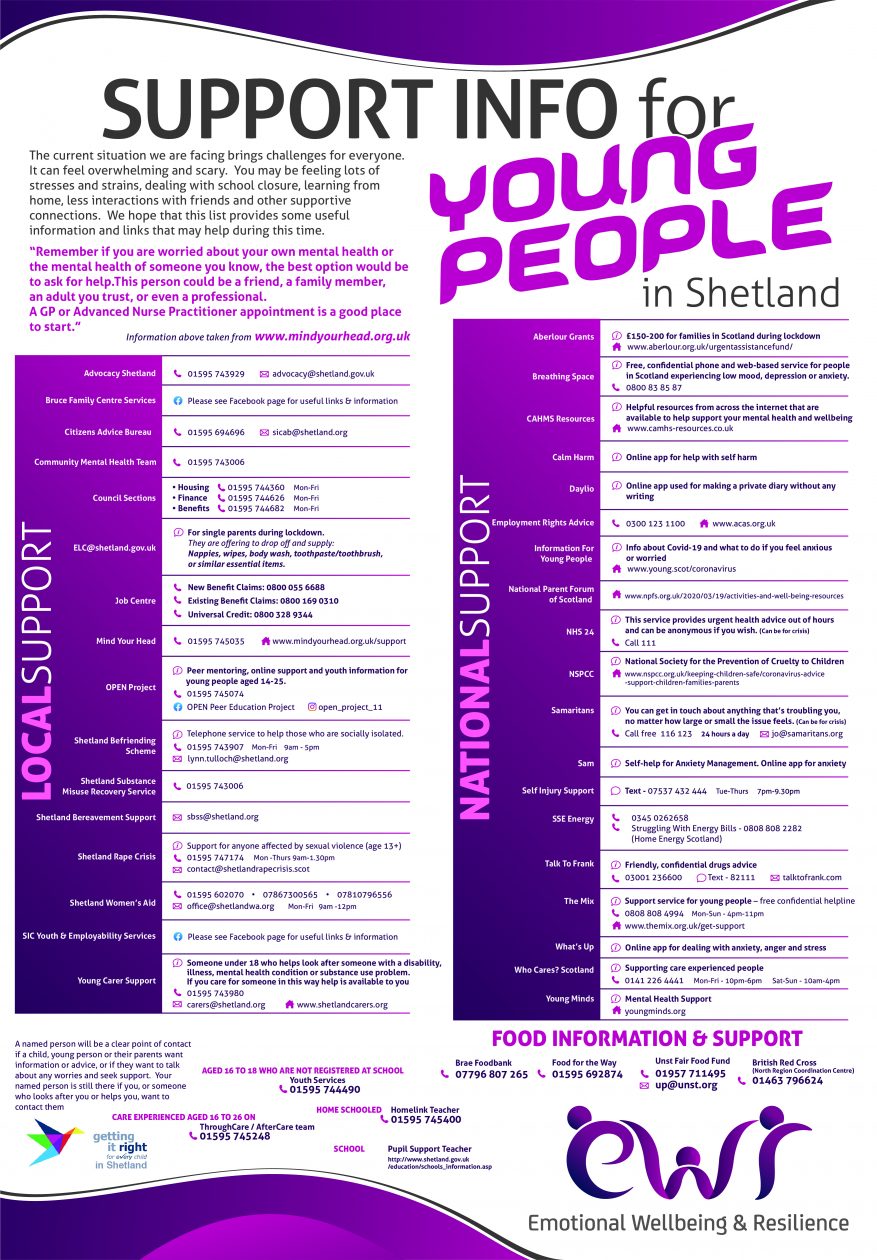Each child’s learning will be planned by their class teacher and information will be shared with learners and their families directly from the school. If you need to get in touch with your school, contact details can be found on the following website:https://www.shetland.gov.uk/education/schools_information.asp
This area of the website will provide pupils with information to assist them with their learning. Helpful advice around online learning can be found below.
A page offering Digital Support is available and we have a page with suggested websites. You should also have a look at the Nature Nudge page – this will hopefully encourage you to get outdoors and see what is around us.
Children’s Parliament is engaging children in conversations about their experience of coronavirus and the lockdown. They have now launched their May edition of the national wellbeing survey How are you doing? The survey is here and is for 8-14 year olds bit.ly/Coronavirus_Kids.
Some Advice for Pupils Around Online Learning
1. Be patient: Your teachers have been asked to make their teaching available to you online at the last minute. The best online learning takes time to develop. Please be patient with them if things don’t go right for you the first time.
2. Embrace online: Online learning will become more and more common in the future, so this is a great chance for you to develop some skills to help you succeed.
3. Develop your communication skills: You will communicate in different ways on various online formats (email, discussion boards, social media, online seminars). Be professional and appropriate, but don’t be afraid to project your personality and show that you are a real person.
4. What if I have a technical issue? Develop your initiative and resilience. Don’t give up if you hit a technical issue. For example, if your reading link is broken, maybe you can search for the journal article yourself by using the library search.
5. Stick to a routine if this works for you: There are many time management techniques, so find one which works for you. There will likely be daily and weekly tasks for you to do plus longer term targets like deadlines. Plan a daily, weekly and monthly schedule to manage these different timescales.
6. Get connected: Be proactive with communicating with your peers.
7. Find somewhere quiet to work. Yes you can work from bed but this might not be the most comfortable! Make sure you have somewhere peaceful to work, try and use a workspace like a desk or table, and cut down on external and online distractions.
8. Use the right channels to solve your problems: This will be signposted for you by your teacher(s), so contacting the correct person will help you get your problem solved more quickly.
9. Embrace discussion boards/chats: These are a great way to discuss with your peers and work through learning as a group. Ask questions, comment on your class mates’ answers, and enter into dialogue.
10: Online learning communities can be as rich, supportive and exciting as being in school. We hope you can adapt to this experience and benefit from it.



